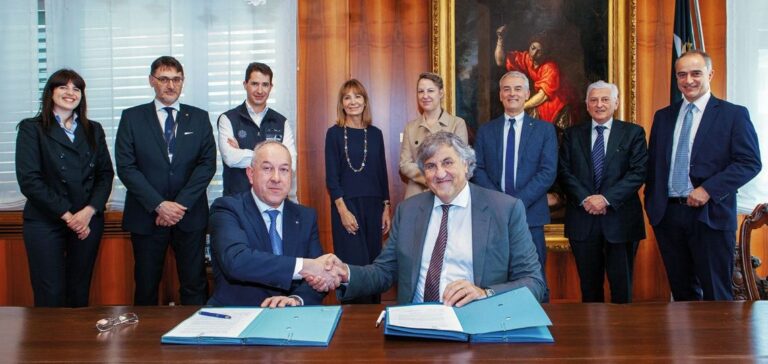The companies Newcleo and Danieli recently signed a Memorandum of Understanding (MoU) to integrate Newcleo’s Lead-cooled Fast Reactors (LFR) into Danieli’s industrial steel production processes. The central aim of this partnership is to simultaneously supply electricity and high-temperature heat, eliminating the use of fossil fuels in steel manufacturing. The agreement specifically targets Danieli’s Digital Melter process, which relies heavily on stable, high-temperature thermal energy and electricity. Additionally, the partnership could expand towards producing so-called “green” hydrogen, essential for Danieli’s Energiron direct iron ore reduction technology.
Industrial objectives of the partnership
The MoU specifically emphasizes the application of Lead-cooled Fast Reactors designed to concurrently deliver electricity and high-temperature heat required by steelmaking installations. This initiative aligns with the European strategy aiming at significant reductions in greenhouse gas emissions from heavy industries. Danieli intends to secure its energy supply and reduce reliance on fossil fuels amid increasingly volatile energy prices. The technological integration proposed by this partnership has the potential to stabilize Danieli’s energy costs and reinforce industrial competitiveness at the European level.
Addressing rising energy costs
This collaboration occurs amidst a European context defined by heightened energy prices, volatility, and regulatory measures. The European Commission’s recent “Clean Industrial Deal,” announced in February 2025, includes over EUR 100 billion to support clean industrial production methods and mitigate the economic impact of rising energy prices. The steel sector has explicitly been identified as a strategic industry within the framework of the Commission’s “Strategic Dialogue on the Future of the Steel Sector,” aimed at reinforcing industrial competitiveness through lower-carbon production processes.
Industrial interest in modular reactor technology
Lead-cooled Fast Reactors (LFRs), the technology deployed by Newcleo, operate at high temperatures and ensure stable and reliable provision of thermal and electrical energy to heavy industry processes. Integrating these reactors into industrial applications represents a technological alternative to natural gas and coal traditionally used in metallurgical processes. Through this technological cooperation, both companies anticipate contributing to the emergence of a steel industry less vulnerable to fluctuations in global energy markets. Other European industrial players are exploring similar initiatives involving Small Modular Reactors (SMRs) to enhance regional industrial competitiveness and energy security.
Industrial cooperation toward energy sovereignty
Several other European industrial groups are simultaneously developing similar projects, signaling growing interest in modular nuclear reactors. Notably, EDF, Edison, and Ansaldo Energia have announced plans to deploy SMRs across Europe in the upcoming decade. These initiatives reflect an industrial trend toward securing energy needs while reducing exposure to energy price volatility. The broader movement toward modular nuclear reactors underlines European industries’ ambition to strengthen energy sovereignty and secure supply chains amid unpredictable global energy market conditions.





















